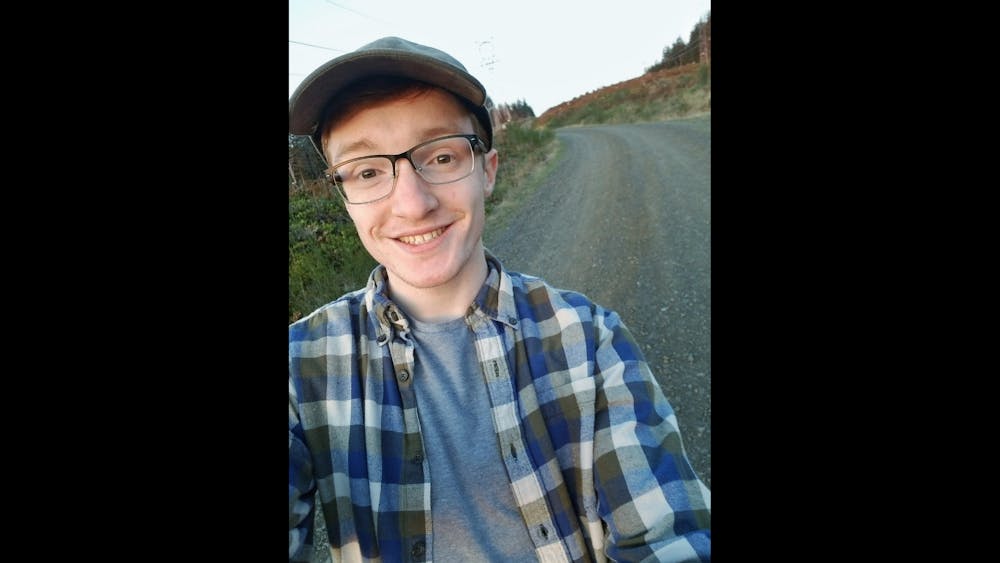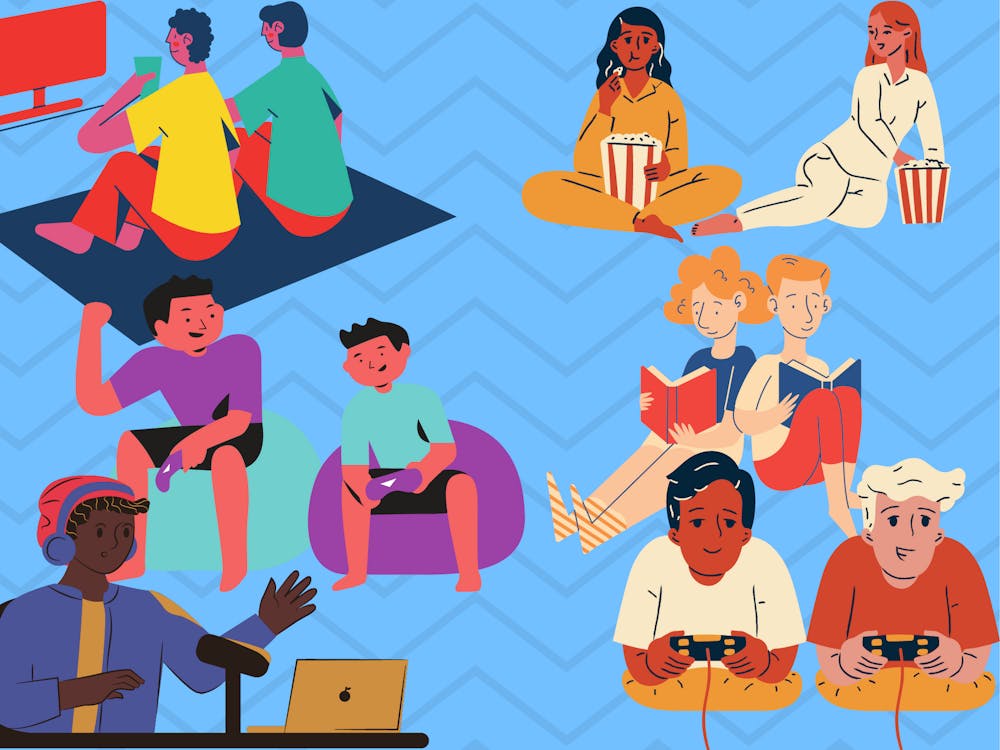Mental health and mental disorders are a delicate topic that should be discussed with respect, dignity, nonjudgement and awareness. Discourse about mental health that does not involve these only furthers stigma and misinformation. While the psychology community can sometimes put the DSM on too high a pedestal, we can still learn from it a basic understanding of the typical behavior that is classified under a certain disorder.
We often find that social perceptions of a particular disorder are mismatched when lined up with the description of that disorder. When this occurs, it adds barriers over which people with mental disorders must climb in order to exist free of judgment.
It’s crucial we address these mismatches and do our best to use accurate and appropriate language surrounding mental health. If you’ve ever described weather as bipolar, friends as anorexic or a tidy person as Obsessive-Compulsive Disorder (OCD), you’ve contributed to the barriers that already exist for people living with these disorders.
Language of this kind normalizes not only the perception that the experiences of people with mental disorders are easily trivialized and oversimplified, but also that it’s appropriate to use experiences to which we can’t relate as fuel for humor. Both of these are harmful, and I’ve experienced much of this surrounding my OCD.
Though I was only diagnosed as having OCD in December of 2020, it made my life harder before I started to wonder why. Diagnosing is important because it puts into language a possibly nameless or definition-less experience, but that doesn’t mean the struggle begins there.
I started to become aware of my OCD tendencies from a young age, though I didn’t realize what it meant. I’d need to count the steps as I walked upstairs, organize my Skittles before I ate them, or use my senses of touch in a particular way. My movement through the world and my view of it were shaped by OCD long before I knew.
In high school, I started to learn more about psychology, and having a career psychologist as a parent helped. Conversations about mental health and crisis work were normal in my life, and stigma wasn’t as present in my childhood. Once conversations started to involve my own mental health, that changed. I knew that I was different, but I didn’t know why.
I started seeing a therapist in the winter of 2020 due to an unhealthy relationship. Eventually, I brought up symptoms I knew related to OCD. My therapist very quickly diagnosed me on the spot, noting the significant role my symptoms played in day-to-day life. While I knew this was coming, it was still eye-opening and relieving. It meant I could more accurately self-reflect and learn about myself. Even to this day, I’m learning new ways in which OCD plays a role in my life both positively and negatively.
Since being diagnosed, something I’ve noted far more often is the extent to which our society completely misunderstands OCD. When I hear stereotypes and misunderstandings about OCD, it trivializes my experience. It makes my story less meaningful and forces me to correct people when they are inaccurate. When people learn of my OCD, they often ask insensitive questions.
Here are some things to never ask someone with OCD:
1. Have you ever tried not thinking about it?
2. What if you just don’t do a compulsion or ritual?
3. Is that why you’re so neat?
4. It just means you’re a perfectionist, right?
5. Are you just saying that for attention?
Questions like these sound inappropriate when we apply them to other scenarios. We all know that telling someone with depression to try smiling is insensitive and callous. With OCD, however, it seems questions like this are more normal. OCD can look very different in different people, and while it can often involve neatness or cleanliness, that isn’t where it starts or stops.
OCD is characterized by obsessions or anxious thought processes that result in a need to perform a ritual or compulsion to alleviate the anxiety. This works temporarily, but often the more a compulsion is performed, the longer it becomes and the more often it needs to be performed. OCD also tends to worsen if left untreated. Sometimes medication can alleviate the symptoms, but the prognosis tends to involve and increase in severity. I’ve noticed this in my life, and stressful events can add to the severity.
I want to list candidly some of my symptoms so people can learn what it’s like for me to live with OCD.
1. If I leave the house without my ring I’ve worn for years, I’m physically uncomfortable and restless until I get it back. I’ve only done this twice, and I remember pointedly how awful those days were.
2. I have to do things in the same order each time. This might mean the way I get dressed or the way I pack my bag, but if I do it wrong I have to start over from the beginning (though usually only once).
3. I get intrusive thoughts about irrational things that don’t make sense. I’ve stopped mid-shower to go blow out a candle I left lit because I was overcome by anxiety that I’d burn the house down (despite letting it burn when I’m in the room).
4. Sometimes I get intrusive thoughts while driving about intentionally crashing or running over something. I obviously won’t, but it’s incredibly hard to let these thoughts go (and any intrusive thought that occurs with OCD).
5. Certain sounds are either really satisfying or make me really uncomfortable. For example, I can’t listen to ASMR even briefly because of the physiological response that occurs when I do.
6. I need my living space to be just so or I become unable to function or focus until I correct it.
There are many more symptoms I didn’t list, but I want to paint a clear picture about how OCD affects my life negatively before moving on to the positive effects I experience (because there are several, as well!). It’s so much more than being neat or clean. Having to correct assumptions forces me to justify my own experience as authentic when it shouldn’t be questioned to begin with. I also live with diagnosed ADHD, and I often find it in competition with my OCD.
Despite all of this, OCD affects me positively in several ways. Once I get interested in something, my memory is fantastic. I’m highly detail-oriented and do great work in the few areas of passion I have. I’m quite particular about words and language, which makes me able to communicate well. I’m able to compose and enjoy music that I find satisfying to engage with such that my symptoms are reduced. I also happen to be very neat and organized, too! (I often joke that my room is so neat it looks like I haven’t lived in it yet.)
If I could share a closing thought that would best counter any stereotypes and educate others on what OCD is actually like, it would be this: people who live with OCD exist in an underlying state of anxiety, fear and worry — not arrogance or judgment. We’re trying our best to control things around us because we can so quickly become utterly disabled and dysfunctional when very slight changes occur.
All I ask for is patience from the people around me, because the last thing I need is to be labeled incorrectly again. Often people with OCD are high-achieving and diligent people, so we’re hard to recognize. We don’t seem to ever look the way people expect. That’s all the reason anyone should need to treat us more compassionately, because you never know how heavy our emotional load is today.
Joel Brennan is a senior at UP. He can be reached at brennanj22@up.edu.
Have something to say about this? We’re dedicated to publishing a wide variety of viewpoints, and we’d like to hear from you. Voice your opinion in The Beacon.








